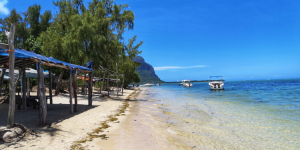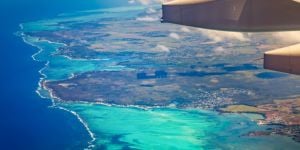
This week, Mauritius confronts multiple critical issues. The government is initiating a national study to align vocational training with job market demands. Concurrently, the nation grapples with pressing economic and ecological concerns. The construction sector faces a crisis, agriculture is heavily impacted by drought, and efforts to combat pollution are intensifying. These challenges highlight the urgent need for adaptive strategies to safeguard both the economy and the environment of the island.
National study to align vocational training with labor market needs
The Ministry of Labor, in collaboration with the Ministry of Education, is set to launch a comprehensive national study to evaluate the needs of the Mauritian job market. This initiative aims to refine vocational training programs to address gaps in critical sectors facing labor shortages. Labor Minister Reza Uteem highlighted that existing statistics fail to capture the true dynamics of the market. The study will also lead to policies that ease the hiring of foreign workers in sectors with acute shortages, alongside implementing penalties for employers who unlawfully employ foreign labor.
Crisis in Mauritius' construction sector
Mauritius' construction sector is grappling with a severe crisis, triggered by unprecedented wage hikes and the introduction of a 14th-month bonus. In 2024, labor costs surged by 27%, placing a significant strain on companies locked into fixed-price contracts, unable to adjust their rates. This escalation in costs has compromised their liquidity and restricted their capacity to invest in modern equipment, thereby diminishing their competitiveness. The Building and Civil Engineering Contractors Association (BACECA) is advocating for governmental support measures, including subsidies and tax credits, to avert widespread company closures and job losses.
Persistent drought puts Mauritian agriculture at risk
Mauritius is currently facing a severe drought that is jeopardizing agricultural production, especially in the northern and eastern parts of the island, where irrigation resources are inadequate for new crop cultivation. As a result, vegetable prices are expected to increase due to lower production volumes, although some areas, like the central plateau and the south, continue to produce at reduced levels. Farmers are being forced to adopt expensive measures, such as purchasing water by tanker. Moreover, the vital sugarcane crop is threatened, with potential yield reductions looming if conditions don't improve soon. While rain is forecasted, substantial intervention may be necessary to avert a prolonged agricultural crisis.
Water restrictions now in effect across Mauritius
Starting Monday, January 20, 2025, the Central Water Authority (CWA) has imposed water distribution restrictions across Mauritius due to significant drops in reservoir and groundwater levels. Currently, reservoirs are only filled to 43% of their capacity, and groundwater levels have decreased by 20%, with several watercourses having dried up. The new water distribution schedules are as follows:
- North and East: 5:00 AM to 12:00 PM;
- South: 3:00 AM to 8:00 AM;
- West: 6:00 AM to 10:00 AM;
- Center: 5:00 AM to 12:00 PM;
- Port-Louis: 4:00 AM to 12:00 PM.
These restrictions are in place until further notice. Tanker trucks are being deployed to assist the most severely affected areas. The CWA urges everyone to use water responsibly, minimizing waste to conserve the dwindling supplies. Authorities are closely monitoring the situation and rely on public cooperation to navigate this challenging period.
Environmental police boost efforts across the island
Since last November, the environmental police have ramped up their efforts to tackle pollution. In December alone, they documented 239 violations, with 128 related to illegal waste dumping. Notable incidents include the sanctioning of a truck operator found dumping sewage on vacant land. The unit has been reinforced with an additional 35 officers and enjoys robust support from local authorities. Besides enforcement, the environmental police are enhancing their public awareness campaigns. Plans are also underway to initiate operations targeting polluting vehicles, further strengthening their commitment to environmental protection.




















Comments